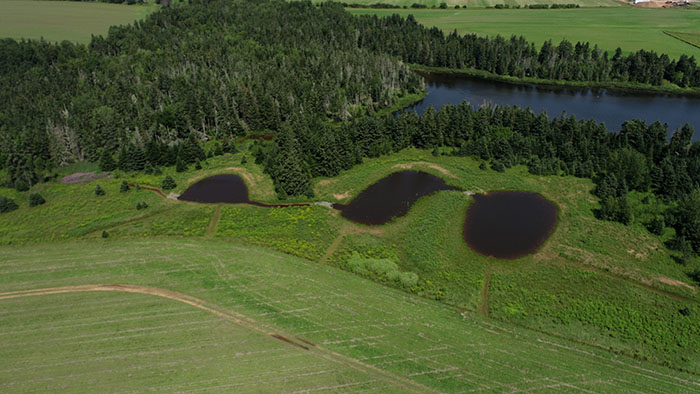
Canadian farmers are good stewards of the land and have long cared for the environment. They are on the front lines of climate change, and the first to feel its effects. To adapt to the new climate reality, Agriculture and Agri-Food Canada (AAFC) and farmers are working together to speed up the adoption of more environmentally friendly practices and technologies in order to protect the environment and continue to be leaders in sustainable agriculture.
This is the mantra behind Living Lab – Atlantic, a four-year research collaboration between AAFC, farmers and environmental organizations on Prince Edward Island (PEI) that began in 2019. There are over 20 PEI farms along with dozens of scientists and technicians across Atlantic Canada participating in Living Lab – Atlantic. Their research is addressing several key areas impacting farmers, including soil health, water quality management and crop productivity. The farming practices they are studying and expertise gained will be shared with farmers across Canada to increase adoption.
This series of four articles takes you through the different Living Lab – Atlantic sites across PEI to showcase the work farmers and scientists are doing to contribute to environmental sustainability in agriculture.
Close to the northeastern tip of PEI, there's a parcel of land next to a farm near the Town of Souris, that’s just hopping! Hopping with new frog species, that is. Recently, Frances Braceland of the Souris and Area Branch of the PEI Wildlife Federation counted several frog species next to farm fields. She isn’t surprised to find this level of biodiversity next to this particular farm in Souris. It's the result of many months of planning, followed by the construction and restoration of wetlands on farmland like this and across PEI as part of Living Lab – Atlantic.

Funding through AAFC was ear-marked for collaborators, Souris and Area Branch of the PEI Wildlife Federation, East Prince Agri-Environment Association, Kensington North Watersheds Association and Ducks Unlimited, to develop wetlands on farmland that’s not suitable for crop production, but can still be valuable in providing benefits for the environment.

"Since 2019, we have constructed two wetlands around PEI, and plan to continue more work over the next two years," says Frances.

These wetlands naturally filter water from farm fields before it enters other watercourses, and provides natural habitats for diverse species such as plants, insects, amphibians, birds, waterfowl, and other wildlife species. Wetlands even reduce greenhouse gas emissions to protect us from the effects of climate change.
According to Frances, "wetlands have been incredible for non-farmable land that otherwise would have been left overgrown, and farmers are delighted to be contributing their land to improve the environment for all Islanders."
Next up on our Living Lab – Atlantic Field Trip is Kensington, PEI.
Visit Living Lab – Atlantic for more information about the initiative.
Get more Agri-info
- Want more stories like this? Explore what else Agri-info has to offer.
- Interested in reporting on this story? Contact AAFC Media Relations at aafc.mediarelations-relationsmedias.aac@agr.gc.ca to arrange an interview with one of our experts.